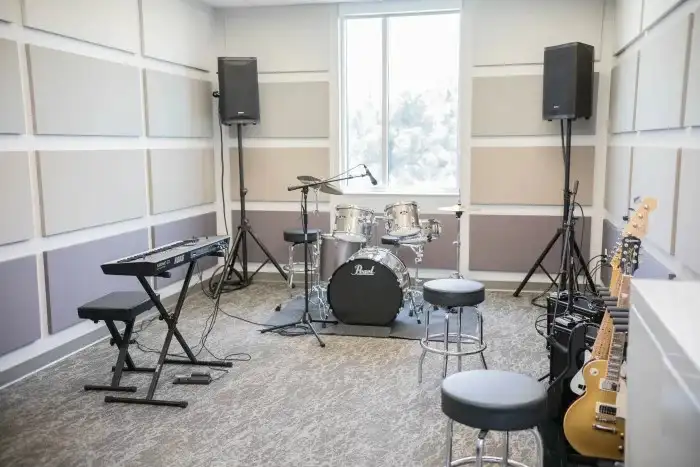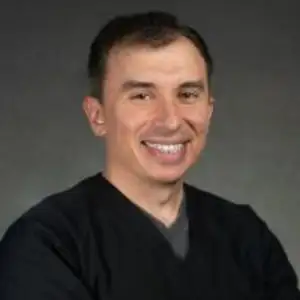





Founded
Occupancy
Accreditation
Who We Treat
Specializations
Levels of Care
About Wilmington Treatment Center
Accepted Insurances
Treatment
Levels of Care
Day Treatment
In a PHP, patients live at home but follow an intensive schedule of treatment. Most programs require you to be on-site for about 40 hours per week.
Detox
Detox fully and safely removes toxic substances from the body, allowing the next steps in treatment to begin with a clean slate.
Outpatient
During outpatient rehab, patients attend a structured treatment program while continuing to live at home.
Residential
In a residential rehab program, patients live onsite, with access to daily treatment and 24-hour care. An average stay is 30-90 days.
Intensive Outpatient Program
In an IOP, patients live at home or a sober living, but attend treatment typically 9-15 hours a week. Most programs include talk therapy, support groups, and other methods.
Methods
Evidence-Based
A combination of scientifically rooted therapies and treatments make up evidence-based care, defined by their measured and proven results.
1-on-1 Counseling
Patient and therapist meet 1-on-1 to work through difficult emotions and behavioral challenges in a personal, private setting.
Trauma-Specific Therapy
This form of talk therapy addresses any childhood trauma at the root of a patient's current diagnosis.
Art Therapy
Visual art invites patients to examine the emotions within their work, focusing on the process of creativity and its gentle therapeutic power.
Eye Movement Therapy (EMDR)
Lateral, guided eye movements help reduce the emotional reactions of retelling and reprocessing trauma, allowing intense feelings to dissipate.
Life Skills
Teaching life skills like cooking, cleaning, clear communication, and even basic math provides a strong foundation for continued recovery.
Group Therapy
Two or more people meet with a therapist together. Patients get valuable peer support, strengthen interpersonal skills, and improve self-awareness.
Yoga
Yoga is both a physical and spiritual practice. It includes a flow of movement, breathing techniques, and meditation.
Family Therapy
Family therapy addresses group dynamics within a family system, with a focus on improving communication and interrupting unhealthy relationship patterns.
Music Therapy
Singing, performing, and even listening to music can be therapeutic. Music therapy sessions are facilitated by certified counselors.
Recreation Therapy
In recreation therapy, recovery can be joyful. Patients practice social skills and work through emotional triggers by engaging in fun activities.
Twelve Step Facilitation
12-Step groups offer a framework for addiction recovery. Members commit to a higher power, recognize their issues, and support each other in the healing process.
Expressive Arts
Creative processes like art, writing, or dance use inner creative desires to help boost confidence, emotional growth, and initiate change.
Seeking Safety
Not looking to the past, patients improve their present circumstances. They work toward safety without detailing traumatic events.
Twelve Step
Incorporating spirituality, community, and responsibility, 12-Step philosophies prioritize the guidance of a Higher Power and a continuation of 12-Step practices.
Reiki
Hand placements or light touches over the body aim to strengthen patients' life energy, guided by a Reiki therapist with expertise in this Eastern medicine.
Medical
Medical addiction treatment uses approved medications to manage withdrawals and cravings, and to treat contributing mental health conditions.
Conditions We Treat
Alcohol
Dependence on alcohol for coping or excessive drinking indicates a disorder that can have serious health and social implications.
Anxiety
Anxiety disorders involve excessive worry and physical symptoms such as tension and elevated blood pressure, often interfering with daily life.
Benzodiazepines
Used for treating anxiety and sleep problems, benzodiazepines can be highly addictive, leading to mood swings and impaired judgement when abused.
Bipolar
Bipolar disorder features intense mood swings from highs (mania) to lows (depression), impacting one's ability to function normally.
Co-Occurring Disorders
When someone has both a mental health disorder and substance abuse issue, it is known as a dual diagnosis or co-occurring disorder.
Cocaine
Cocaine is a powerful stimulant that creates euphoria but can lead to severe health issues like heart problems and psychosis with prolonged use.
Drug Addiction
Substance addiction involves compulsive drug use despite adverse consequences, negatively affecting health, relationships, and daily life.
Heroin
Heroin, an illicit opioid, is highly addictive and can cause severe health issues such as heart problems, insomnia, and collapsed veins.
Methamphetamine
Methamphetamine increases energy and alertness but can cause severe mental and physical health issues, including paranoia and agitation, with long-term use.
Opioids
Opioids, which include prescription painkillers and heroin, can lead to addiction due to their pain-relieving and euphoric effects.
Prescription Drugs
Misuse of prescribed medications, driven by cravings or overuse, can lead to addiction, necessitating professional intervention.
Post Traumatic Stress Disorder
PTSD arises from traumatic events, causing symptoms like flashbacks, anxiety, and intrusive thoughts that can persist long after the event.
Synthetic Drugs
Lab-made drugs, unlike natural ones, include stimulants and synthetic cannabinoids, which can have unpredictable and dangerous effects.
Trauma
Traumatic experiences can result in long-lasting mental health challenges, often referred to collectively as trauma, requiring specialized care.
Chronic Relapse
Repeated relapse after periods of recovery from addiction is a chronic condition that requires ongoing treatment and support.
Depression
Depression ranges from mild to severe, causing feelings of fatigue, numbness, and disinterest in daily activities, impacting overall well-being.
Staff

Barb Barry
Nurse Practitioner, RN, AGNP-BC

